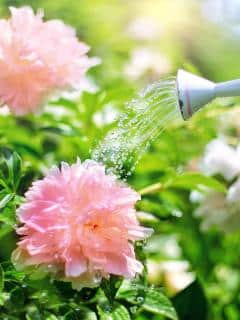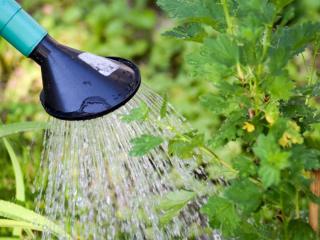

Learn to value urine, rightfully called yellow gold, on the scale of a family vegetable garden… in complementarity with brown gold (no, not that one – we mean compost) and blue gold (water). The idea of fertilizing the garden with the family’s urine still represents a cultural taboo.
Yet, it’s a simple organic waste to recycle, natural and it’s easy to use safely. That in itself makes it an interesting alternative to synthetic fertilizers.
For instance, nursery owner and engineer Renaud de Looze in his book “Urine, Liquid Gold for the Garden” builds on over 20 years of experimentation. In the postface, the head of research at the Terre Vivante center, Antoine Brosse-Platière, comments:
“It’s an abundant and free resource that is unjustly despised. It is beginning, however, to generate scientific research in many countries, opening promising perspectives. It’s high time we all work to rehabilitate the use of this liquid gold that is so precious in the garden”.
 Fresh urine from a healthy person is naturally sterile, hence non-toxic. In general, human urine improves soil structure and plant health. It’s made up of water and minerals that are easily absorbable by plants, like:
Fresh urine from a healthy person is naturally sterile, hence non-toxic. In general, human urine improves soil structure and plant health. It’s made up of water and minerals that are easily absorbable by plants, like:
This means a single quart or liter is equivalent to 3.5 oz of organic fertilizer (100g) bought from the store!
Urine also contains magnesium, calcium, sulfur, sodium, chlorine, trace elements… And in addition to being useful in the garden, recycling it helps reduce wastewater that would otherwise need treating. And it greatly reduces reliance on commercial fertilizers, with a perfectly local source!
Recycling urine is a practice within everyone’s reach, at the scale of a vegetable garden or a family garden.
First of all, collect it separately from fecal matter. This is important to avoid contamination with pathogenic bacteria, since fecal matter isn’t sterile at all.
 Then, follow one of these two methods:
Then, follow one of these two methods:
Recommended doses are 1 to 3 quarts of urine per square yard (1 to 3 liters per square meter). “It’s a fertilizer suited to most plants. Measuring correctly helps avoid excess nitrate and eliminates risks of excessive salinity”, the author advises.
“And to keep smells from appearing, you must make sure the soil you pour it into is well-aerated and very much alive. Urine therefore goes hand in hand with a preliminary supply of compost or manure beforehand, at least 3 months earlier…”
“For each quart of urine (1L) you intend to spread, incorporate 1 quart (1.1 lbs) of rich compost into the first 2 inches of soil (5 cm).”
Even plants in pots can benefit from this liquid yellow gold!
Happy fertilizing!
Claire Lelong-Lehoang